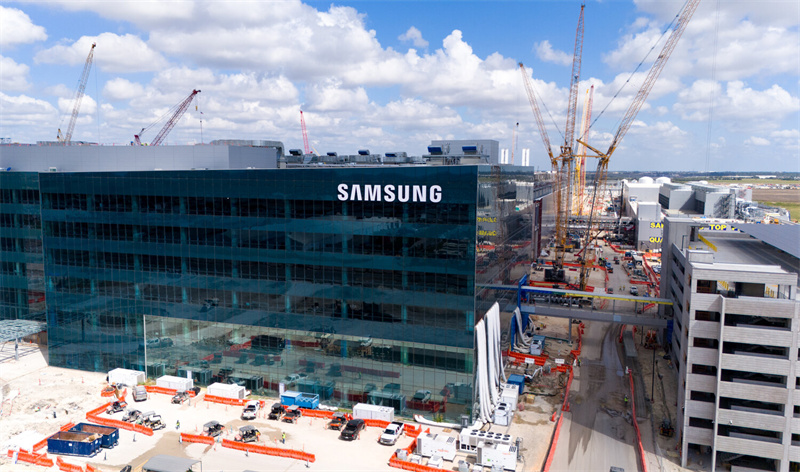As the U.S. government delays its announcement on semiconductor tariff rates until next week, there is growing speculation that equipment, which was previously exempt from reciprocal tariffs, may now face levies of up to 25%. In response, Samsung Electronics is accelerating equipment imports to its near-completed Taylor plant in Texas, aiming to minimize the potential impact of these tariffs. TSMC is also expediting equipment shipments to its U.S. facilities.
On April 15, industry insiders revealed that during a recent live Q&A aboard Air Force One, President Trump stated that he would "announce" the semiconductor tariff news "sometime next week." He added that tariffs would be "implemented soon" and reiterated, "We want to make semiconductors in the U.S." The U.S. government had earlier proposed a minimum 25% tariff on semiconductors, citing national security concerns, leaving little room for negotiation with other countries. This has raised fears that semiconductor equipment could face similarly steep tariffs.
Although the U.S. had previously exempted semiconductor equipment and smartphones from reciprocal tariffs, the possibility of new tariffs being introduced in the coming days has heightened concerns within the industry, with U.S. semiconductor companies bracing for higher operational costs.

In light of this, Samsung is likely to expedite the importation of equipment to its Taylor plant, which is entering its equipment delivery phase. By the end of last year, the plant's construction was 99.6% complete, and equipment is typically delivered 3 to 6 months after a plant's completion. The potential timing of the tariff imposition could coincide with the equipment delivery schedule. The Taylor plant, set to produce advanced 4nm and smaller semiconductor nodes, will require costly equipment from companies like ASML of the Netherlands and Tokyo Electron of Japan. With both companies having production facilities overseas, avoiding tariffs could be challenging.

Notably, ASML's extreme ultraviolet (EUV) equipment, which costs up to 500 billion KRW per unit, could face tariffs amounting to hundreds of billions of KRW. Previous reports indicate that TSMC has already requested its equipment suppliers to deliver machinery to the U.S. within this month.
Samsung's $17 billion Taylor plant project has been delayed from the end of last year to next year. Industry experts believe that "Samsung may have little choice but to accept the high tariffs on semiconductor equipment. With the plant nearing completion, the company may prioritize ensuring the equipment is in place within the U.S."
+86 191 9627 2716
+86 181 7379 0595
8:30 a.m. to 5:30 p.m., Monday to Friday
